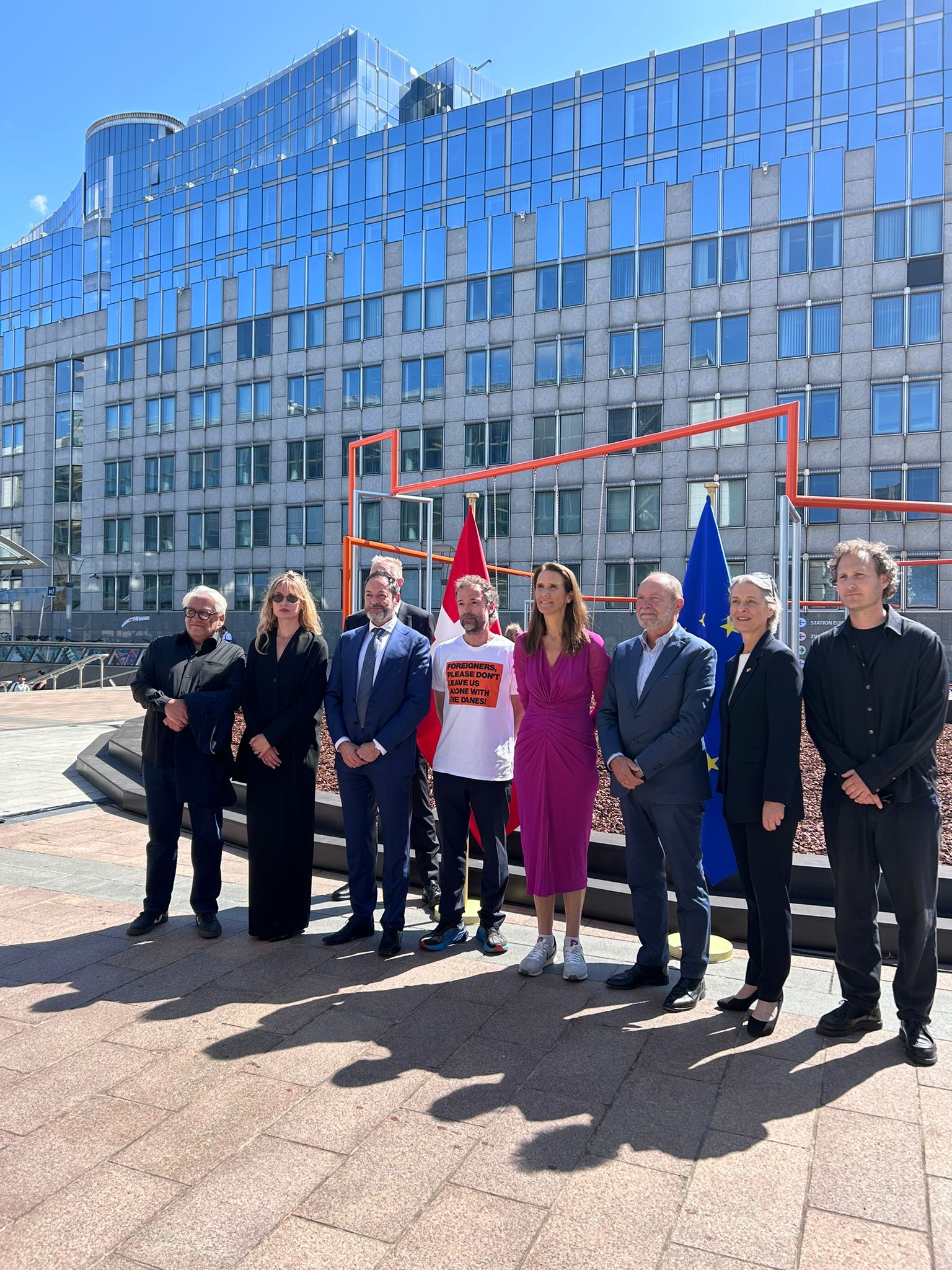



Welcome to the Brexit Brief! In this newsletter for UK citizens living in Brussels or thinking of moving here, we will explore some of the more complicated aspects of life after Brexit. Each edition will start from a puzzling everyday question, using it as a chance to explore the rules that UK citizens should know about.
UK citizens living in Belgium or considering moving here will often be interested in having their family join them – either immediately or later on. The question then arises whether this is possible from an immigration perspective, since your family members living back in the UK are in most cases no longer EU citizens. If your family member cannot move to Belgium under their own steam (as a worker, student, etc) then you will need to explore the possibility of “family reunification” as a route to residence. In this case, you or another Belgian resident would act as a “family member sponsor” for the applicant.
The rules around family reunification are complex, and the conditions and requirements will depend on various factors:
We distinguish between the following categories of family member sponsors:
We did not choose the order of these categories by chance. They are ranked from the most favorable to the most limited rights in terms of family reunification. At the bottom of this article, you can find a summary table with the types of family members that can qualify for family reunification depending on the citizenship and status of the sponsor.
In this edition of the Brexit Brief, we will focus on family reunification in cases where the sponsor is an M-Card holder, a UK citizen not holding an M-card, or a Belgian national. The case of Belgian nationals is relevant because many UK citizens have acquired or are considering acquiring Belgian nationality after Brexit, a change that brings many benefits but might hold risks for access to family reunification. The most beneficial rules are actually for non-Belgian EU citizens, but these would typically not apply to UK citizens living here in Belgium, so we do not address them.
We only discuss which types of family members can qualify for family reunification. However, in many cases there also various substantive eligibility conditions. These are often related to issues such as the sponsor’s income or the exact nature of the applicant’s “dependency” on the sponsor. These substantive eligibility conditions are heavily scrutinised by the authorities so it is advisable to seek specialised advice on which conditions are applicable and what documents should be submitted.
The procedure for lodging a family reunification request will also depend on the citizenship of the family member sponsor and their residence status in Belgium. Applications by family members of M-card holders and Belgian nationals are typically submitted at the town hall in Belgium, while applications by family members of UK citizens that are not M-card holders are typically submitted at a Belgian consular post (or in specific circumstances at the town hall in Belgium).
Under the terms of the Withdrawal Agreement, specific rules apply to family members of UK citizens holding a valid M-Card. In some instances, these rules are more beneficial than those which apply to family members of non-EU citizens or even to family members of Belgians.
In practice, these rules mean that you can still acquire an M-Card for certain family members not yet living in Belgium – even though the general application period ended on 31 December 2021. However, the family relationship must have existed prior to 31 December 2020.
The following family members of an M-card holder can still apply for an M-Card:
Where the family link did not yet exist before 31 December 2020, for example if you met a new partner after the deadline, then the applicant will be treated as if their sponsor in Belgium was not an M-Card holder. This means you will still be able to sponsor your spouse, but the more favorable conditions for partners, parents, descendants and ascendants granted by the Withdrawal Agreement will no longer apply. There is an exception to this cut-off period for children who were born after the transition period.
The family members that can apply for family reunification with a Belgian national are:
You will notice that this list is shorter than the list of family members which an M-Card holder can sponsor. See the discussion below for more details on what this means for UK citizens who acquire Belgian nationality.
In contrast, the family members that can apply for family reunification with a UK citizen who is not a holder of an M-Card are:
When it comes to your parents, it is clear that the parents of a UK citizen living in Belgium can only potentially qualify for family reunification if their sponsor is an M-Card holder. Parents of a UK citizen that is not an M-card holder or parents of a Belgian national cannot qualify for family reunification. (See the next section for futher information about the parents of M-Card holders who acquire Belgian nationality.)
Another notable difference exists for your children. The age up to which children are eligible for family reunification is set at 18 years old for children of UK nationals who are not M-card holders, while is it set at 21 years old for children of M-card holders and of Belgian nationals. Moreover, for these last two categories children can still qualify even above the age of 21 if they can prove they are dependent on their parents.
Family members who do not qualify for family reunification will need to rely on other types of residence procedures if they wish to move to Belgium, for example as students or based on employment (more information). In certain situations, an exceptional application can be considered: for example for the children of UK citizens who are not M-card holders if those children are only just above 18 years old and are dependent on their parents. In these cases, it is recommended to seek specialised legal advice as soon as possible.
A peculiar situation might occur if a former M-Card holder has since acquired Belgian nationality. Can you can still rely on the more favorable rules applicable to M-Card holders – notably for family reunification with your parents?
The Belgian Immigration Office has confirmed that family members of UK citizens protected under the Withdrawal Agreement can continue to rely on these more favorable rules even after the family member sponsor acquires Belgian nationality. In practical terms, this means that Belgium would still accept an application for family reunification by parents of a former M-Card holder after the sponsor acquired Belgian nationality. However, to avoid any issues, it is recommended to finalise family reunification applications before applying for Belgian nationality where possible.
This position taken by the Belgian Immigration Office is in line with the EU Commission Guidance note (.pdf), which clearly states that UK nationals who acquired nationality of the host state (in this case Belgium) even after the end of the transition period are covered by the Withdrawal Agreement. The Commission bases this statement on an analogy with the European Court of Justice case Lounes (.pdf). This case related to equal treatment of family members of EU nationals who later acquired UK citizenship (dual UK-EU nationals) as compared to family members of EU nationals without UK citizenship. The Lounes judgment (14 November 2017) predates Brexit, so it remains to be seen whether the analogy put forward by the Commission will be accepted by all EU Member States.
Please note that this table is a simplified summary of sponsor-applicant combinations who may be elgible for family reunification. Remember that family reunification is not automatic or guaranteed for these eligible combinations of family members, since other criteria may also apply. It is always advisable to seek individualised advice.
| → SPONSOR → ↓ APPLICANT ↓ | EU CITIZEN | M-CARD HOLDER | BELGIAN NATIONAL | OTHER UK CITIZEN |
| SPOUSE | Yes | Yes | Yes | Yes |
| REGISTERED PARTNER | Yes | Yes | Yes | Yes |
| PARTNER WITH LONG-TERM RELATIONSHIP | Yes | Yes, if family relationship already existed before the end of the transition period (31 December 2020). | No | No |
| CHILD | Yes, if under the age of 21 or dependent | Yes, if under the age of 21 or dependent | Yes, if under the age of 21 or dependent | Yes, if under the age of 18 |
| DESCENDANT (GRANDCHILD, ETC) | Yes, if under the age of 21 or dependent | Yes, if under the age of 21 or dependent | Yes, if under the age of 21 or dependent | No |
| PARENT | Yes, if dependent | Yes, if dependent | Yes, if parents of a minor | No (except parent of an unaccompanied minor refugee) |
| ASCENDANT (GRANDPARENT, ETC) | Yes, if dependent | Yes, if dependent | No | No |
| OTHER FAMILY MEMBERS, DEPENDENT | Yes, if conditions met and rather exceptional | No longer possible after end of application period (31 December 2021) | No | No |
| OTHER FAMILY MEMBERS, SERIOUS HEALTH PROBLEMS | Yes, if conditions met and rather exceptional | No longer possible after end of application period (31 December 2021) | No | No |
Welcome to the Brexit Brief! In this newsletter for UK citizens living in Brussels or thinking of moving here, we explore some of the more complicated aspects of life after Brexit. Each edition starts from a puzzling everyday question, using it as a chance to present the rules that UK citizens should know about. Some newsletters are relevant for M-Card holders, some for those arriving after Brexit, and some for all UK citizens. This newsletter is part of a project funded by the EU’s Brexit Adjustment Reserve, in which we are also developing a series of webinars and an online Brexit Helpdesk. To receive this monthly newsletter straight to your inbox, sign up today!
These pages, webinars and newsletters have been developed in a project funded by the EU’s Brexit Adjustment Reserve.

past events